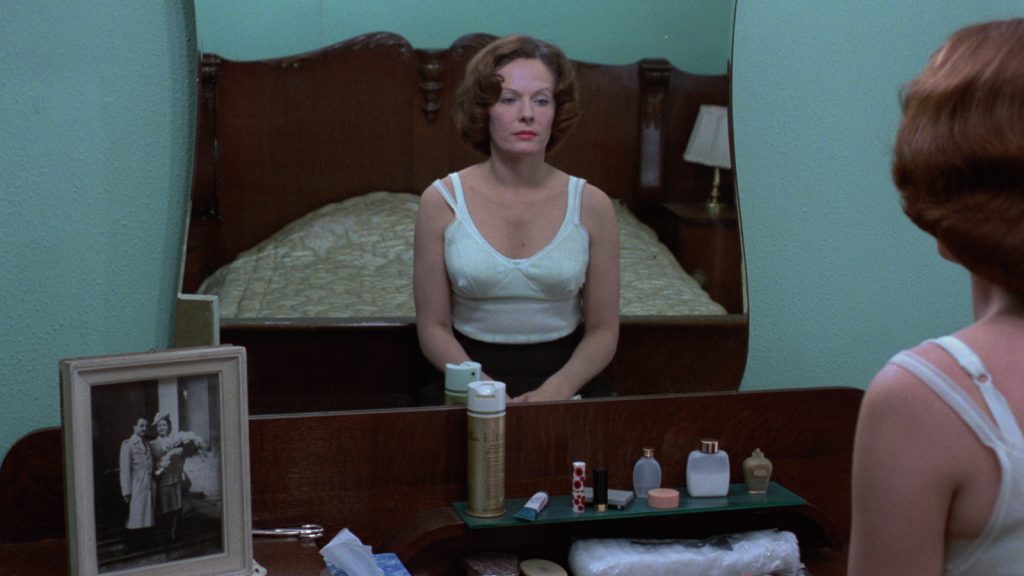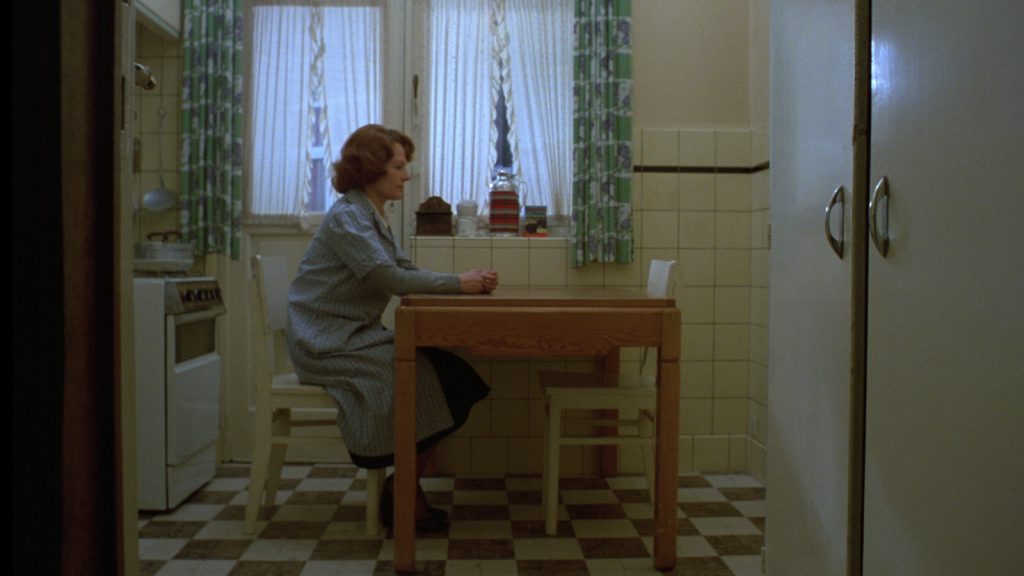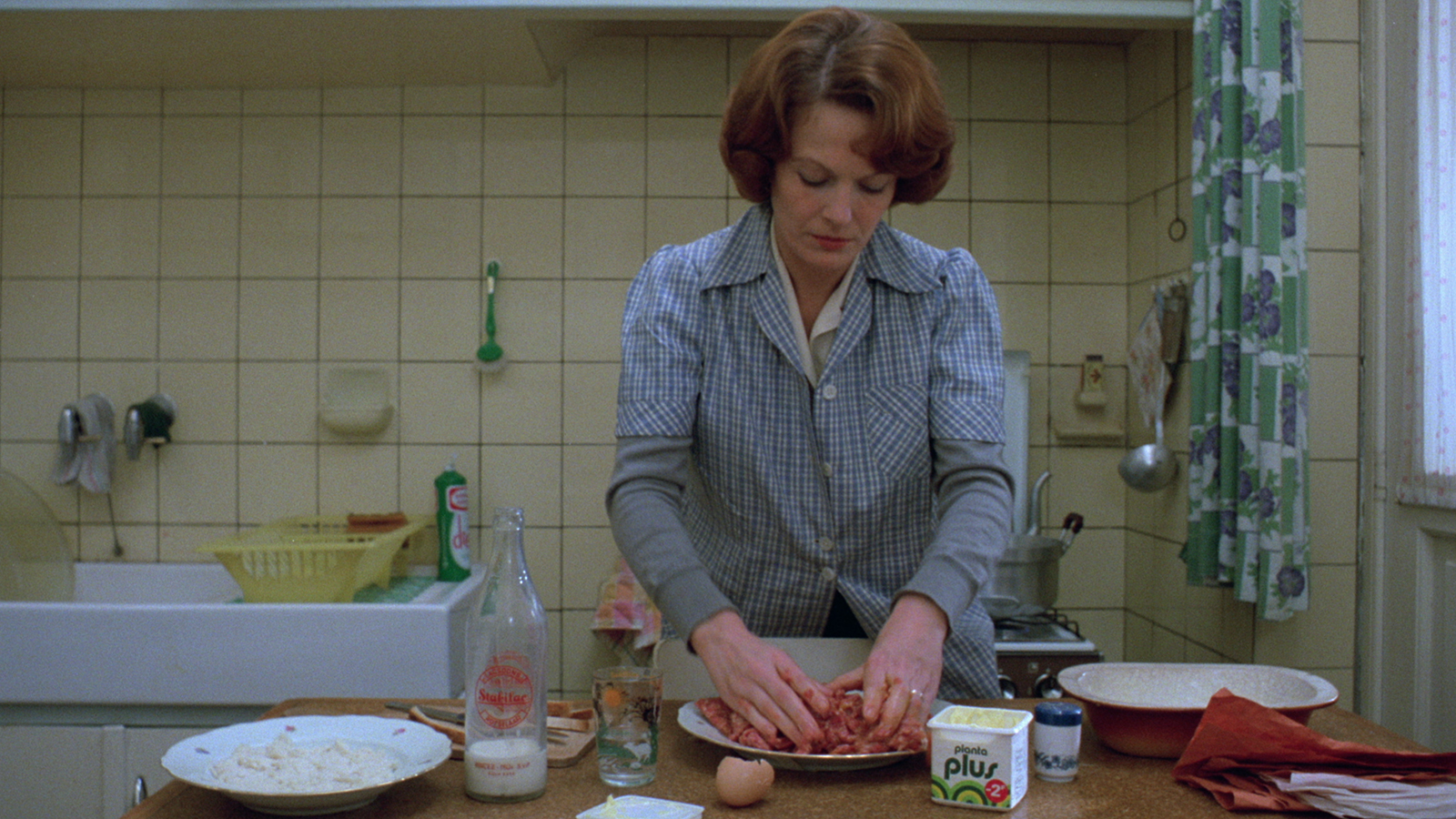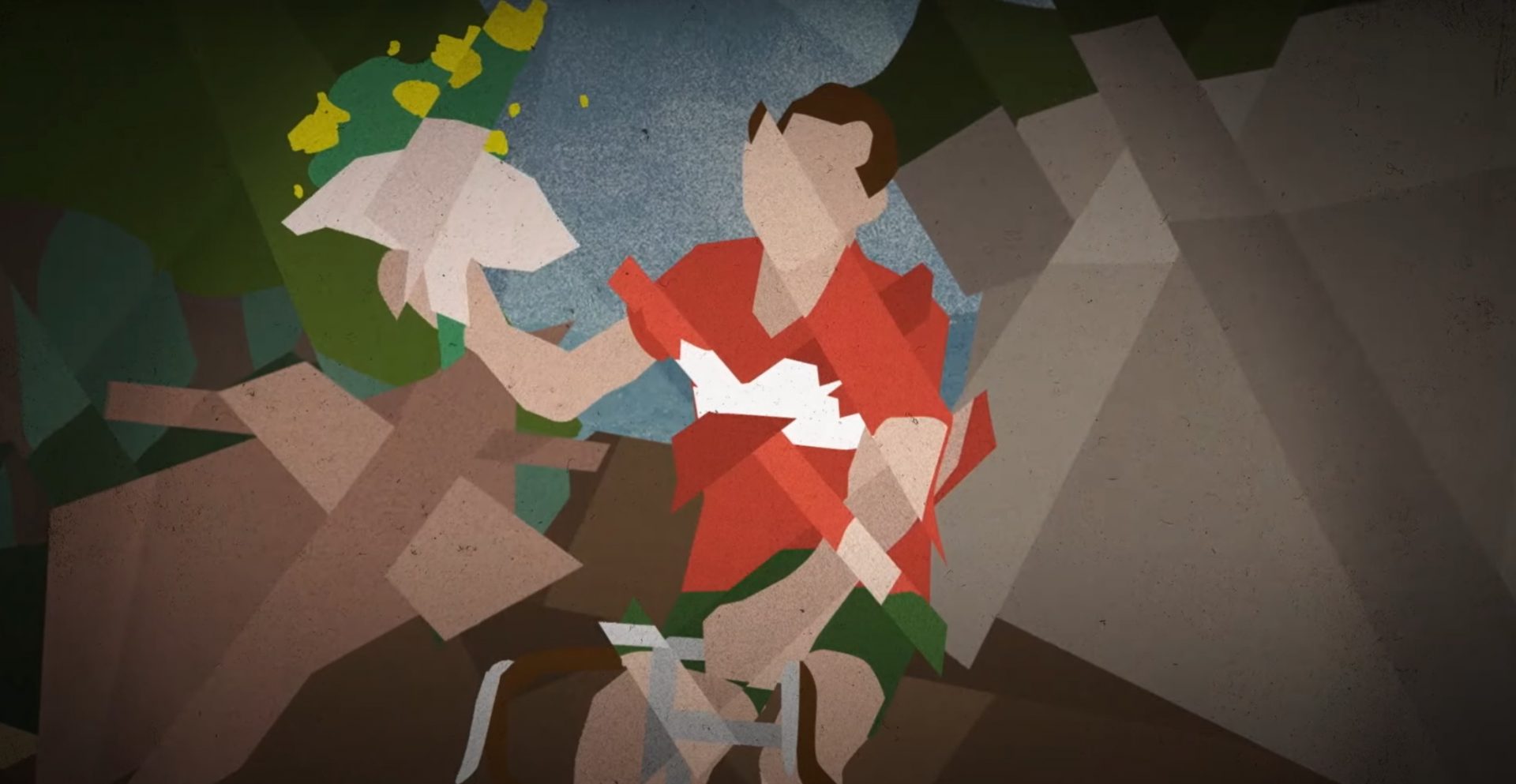Voting for an obscure Belgian arthouse gem as the “Greatest Film Of All Time” seems, at first glance, a whimsical act of critical rebellion. But more than 1,600 of the world’s most influential film critics, academics, curators, archivists and programmers responded to the exhaustive poll conducted every 10 years by the British film magazine Sight and Sound. And this is what they came up with: Jeanne Dielman, 23 Quai du Commerce, 1080 Bruxelles.
“That’s an address, not a film,” you might say. Chances are you might never have heard of it at all. Well, you have now.
What I do know is that this film is three hours and twenty minutes of anyone’s life, so you now have to decide if it’s worth any of yours. I’ve seen it, and I must admit I’ve always held it as, shall we say, a once-in-a-lifetime experience. The film, one of the key themes of which is time itself, will be available to stream for the first time in the UK from tonight on BFI Player, like some cinephilic antidote to the tedium of World Cup group games.
In the age of 30-second Tik-Toks and easy-to-watch Netflix, when cinema itself is in an existential crisis, the choice of a 200-minute European arthouse film, a work that might be termed “pure cinema”, as critics’ champion feels like a bold statement… or a cry for help.
Jeanne Dielman is the best-known work of feminist auteur Chantal Akerman, made in 1975 and long hailed as the first “masterpiece of the feminine”. It follows three days in the unglamorous life of the titular Brussels woman (played by Delphine Seyrig) as she sticks to a monotonously strict routine.
She’s a single mother, a widow, who lives in a flat with her teenage son, and who spends her day cleaning, shopping, peeling potatoes, making coffee and cooking (if you want to know how to prep a basic veal in breadcrumbs, this is your movie), before taking a client in for sex between 17:00 and 17:30. (Interestingly and more than incidentally, Agnes Varda’s clock-ticking study of a Paris prostitute, Cleo from 5 to 7, is at number 14).

Akerman’s camera, static and slightly off-centre, is trained tightly on Jeanne as she goes about her routine, as she comes in and out of shot, suggesting confines and convention, and the slow tick-tock of time. I’ve always been fixated by the washing-up brush on the kitchen wall, and the spare, used tin foil she keeps wrapped in a kitchen drawer. The film is a study of minutiae and details. Slight diversions in the precision and order of these take on huge dramatic significance, such as when she drops a fork.
Of course, there’s a build to something more shocking in the finale, although even that is told with the same blankness of camera stares. Put it this way, there are no car chases in the new “Greatest Film of All Time”. I’m not even sure there’s music. There certainly isn’t much dialogue. And it’s not funny, although I think plenty of people will laugh at the result.
I have been proud to contribute to the last three lists and I’ve never put Jeanne Dielman in my Top Ten. Not that I don’t admire it – perhaps I’ve just never thought of it that ‘way’. This victory is a triumph of film culture being re-framed.
Akerman becomes the first female film-maker to top the Sight and Sound poll, knocking Alfred Hitchcock’s 2012 winner Vertigo from the top spot into second, still ahead of Orson Welles’ Citizen Kane which clings on to third having previously spent 50 years as the seemingly unassailable No.1.
To say Akerman’s film’s rise from 36th place in the 2012 poll to the summit in just ten years is a shock says much about the amazing shift of demographics in film-making and film industry in that period, as well as in critical taste, much of it powered by the #MeToo movement and by a concerted effort and activism towards gender balance.
Recent glass ceilings include female directing triumphs at the Oscars, Cannes, Venice and Berlin. Eleven films by female film-makers make it into the top 100 this time, still quite a low percentage, including two from Agnes Varda, Jane Campion’s The Piano at 50, Vera Chytilov’s Daisies at 28 and, almost shockingly up-to-date, Celine Sciamma’s 2019 hit, Portrait of a Lady on Fire, in at 30.
One might even say Jean Dielman’s remarkable ascent is a triumph of all of those elements. However, many will also point to its status as a relative unknown as a victory for obscurantism and elitism and point to the gap in tastes between current film criticism and public taste. Jeanne Dielman is a staple of film studies courses and Akerman, who died in 2015, has been the subject of numerous cinematheque retrospectives – another of her films, News from Home is at number 52, a film I confess I’ve never seen.

A parallel poll of 480 film makers saw Kubrick’s 2001 come top, with Citizen Kane at 2. Jeanne Dielman still came in at number 4 on the survey that included Martin Scorsese, Sofia Coppola, Bong Joon Ho and Lynne Ramsay among its respondents.
And this is the crux, surely. For all its feminist accolades and directorial rigour, Jean Dielman is a long, long way from any more populist choices which might be expected to come out top were a more general, cinema-going public to be consulted, where films such as Star Wars or Lord of the Rings, Titanic or anything from the Marvel Cinematic Universe – or even prostitute rom-com Pretty Woman – would garner huge votes.
Only two films from the 21st century made the Top 20 of the Sight and Sound list, and both of those from 2001: Wong Kar Wai’s In the Mood for Love at number 5 and David Lynch’s Mulholland Drive at 8 (although there is also Stanley Kubrick’s 2001: A Space Odyssey, which is from 1968, and came in at number 6).
And for all the refreshing surprise of seeing a female-helmed work topping the chart, the Top 20 is painfully and embarrassingly still devoid of any black film-makers. It’s better than in 2012, when there was one film by a black filmmaker listed in the entire top 100 – Djibril Diop Mambéty’s Touki Bouki, at number 93. Now, in 2022 there are seven titles in the top 100 : Touki Bouki has climbed to 67th place, with new entries for Spike Lee’s Do the Right Thing in 24th, Charles Burnett’s Killer of Sheep at number 43, Julie Dash’s Daughters of the Dust and Barry Jenkins’s Oscar-winning Moonlight in joint 60th place. Jordan Peele’s Get Out and Ousmane Sembène’s Black Girl share the number 95 position.
As with many such lists, there are some notable absences that have been knocked out of the Top 100. Raging Bull is out; Chinatown is gone (maybe a feminist backlash against Polanski?); Lawrence of Arabia left in the dust. Macho film bro stalwarts such as Peckinpah’s The Wild Bunch and Robert Altman’s Nashville have been dismissed. And nobody, it seems, has the nerve to vote for anything by Woody Allen these days.
Jason Wood, executive director at BFI and formerly director of HOME in Manchester, said: “As well as being a compelling list, one of the most important elements is that it shakes a fist at the established order. Canons should be challenged and interrogated and as part of the BFI’s remit to not only revisit film history but to also reframe it, it’s so satisfying to see a list that feels quite radical in its sense of diversity and inclusion.”
Over 4,000 films were chosen overall in the critics’ poll that doubled in its scope since the last survey 10 years ago. The results, perhaps, reflect the shifts in the way films are viewed and consumed in the digital age, in the proliferation in film platforms which have given wider access to films that were long difficult to access and the increase in channels and DVD labels dedicated to more niche works, as well as increased emphasis at major festivals on auteur retrospectives and ‘classics’ sidebars.
The critics’ top 20 Greatest Films of All Time for Sight and Sound are:
1) Jeanne Dielman, 23, quai du Commerce, 1080 Bruxelles (Chantal Akerman, 1975)
2) Vertigo (Alfred Hitchcock, 1959)
3) Citizen Kane (Orson Welles, 1941)
4) Tokyo Story (Ozu Yasujiro, 1953)
5) In the Mood for Love (Wong Kar Wai, 2001)
6) 2001: A Space Odyssey (Stanley Kubrick, 1968)
7) Beau travail (Claire Denis, 1998)
8) Mulholland Dr. (David Lynch, 2001)
9) Man with a Movie Camera (Dziga Vertov,1929)
10) Singin’ in the Rain (Stanley Donen & Gene Kelly, 1951)
11) Sunrise: A Song of Two Humans (FW Murnau, 1927)
12) The Godfather (Francis Ford Coppola, 1972)
13) La Règle du jeu (Jean Renoir, 1939)
14) Cléo from 5 to 7 (Agnès Varda, 1962)
15) The Searchers (John Ford, 1956)
16) Meshes of the Afternoon (Maya Deren & Alexander Hammid, 1943)
17) Close-Up (Abbas Kiarostami, 1989)
18) Persona (Ingmar Bergman, 1966)
19) Apocalypse Now (Francis Ford Coppola, 1979)
20) Seven Samurai (Akira Kurosawa, 1954)




